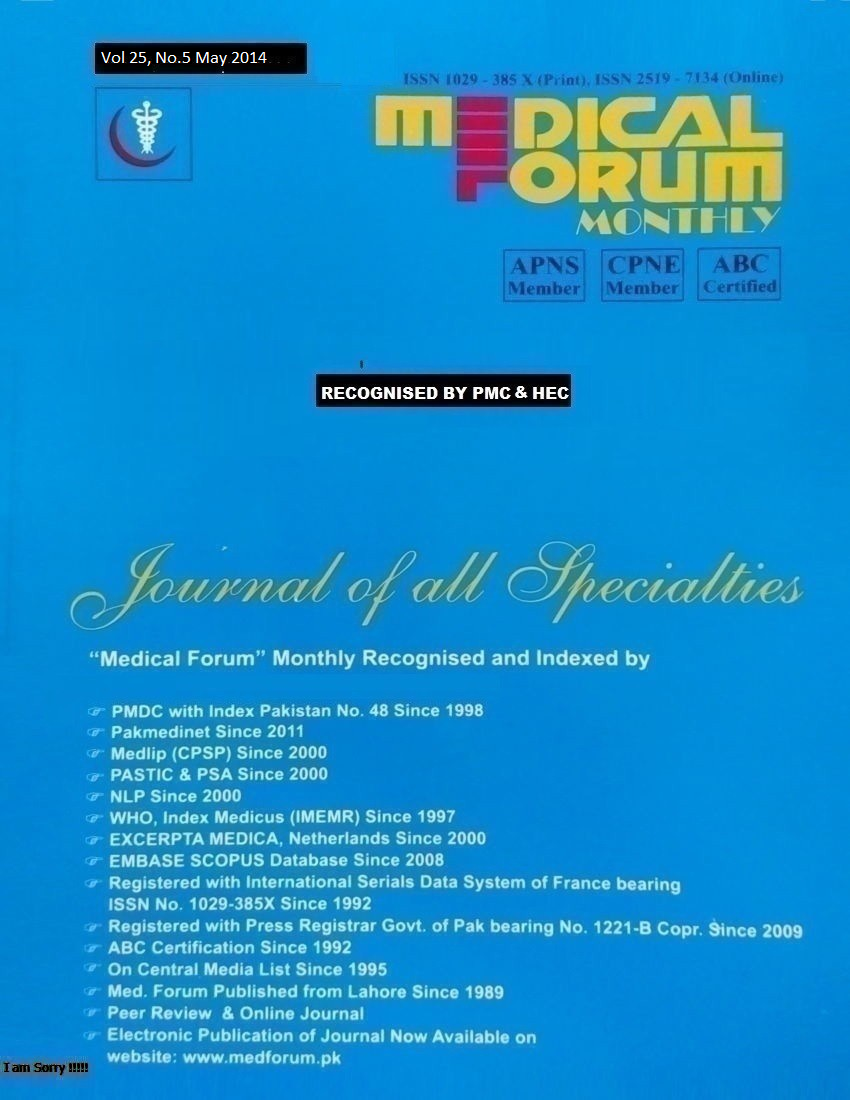
9. Factors Associated with Tuberculosis Treatment Default
1. Javed Akhter Rathore 2.Zulifqar Ali Kango 3.Mohammad Saleem
1. Asstt. Prof. of Medicine, AJK Medical College Muzaffaraabad 2. Asstt. Prof. of Medicine, AJK Medical College Muzaffaraabad 3. Consultant Physician, DHQ, Kotli, Azad Kashmir
ABSTRACT
Objective: This study analyzed tuberculosis treatment default determinants in the Muzaffarabad Azad Kashmir in order to plan the effective interventional tuberculosis control program.
Study Design: Prospective cross sectional cohort study
Place and duration of Study: This study was carried out at Azad Kashmir Combined Military Hospital (AK CMH)/Sheik Khalifa Bin Zyad (SKBZ) Muzaffarabad (MZD) designed for patients defaulting from tuberculosis treatment from 1.1.2013 to 31.12.2013.
Material and Method: This study included 110 adults with diagnosis of TB treatment default. The study protocol incorporated structured questionnaire, physical examinations, radiological, laboratory investigations and potential factors for TB treatment defaults. The statistical analysis was performed using SPSS-20.The chi square test was done and p<0.05 was considered as statistical significance.
Results: PLUM-Ordinal regression analysis revealed that many clinical variables have statistical significant association with tuberculosis treatment defaults. Factors identified to be associated with treatment default were; male gender (p<0.007), distance from the health post (p<0.007), displacement p<0.024), financial Constraints (p<0.001), no body at home to bring medicine or take patients to hospital (p = 0.001), route closed in winters (p = 0.001), improvement from symptoms (0.009) and went abroad (0.001).
Conclusion: Determinants of treatment defaults and associated factors should be considered in treatments plan and policy actions to tuberculosis control programs. Information on disease, treatment plan and education of the individual along with population should be done in order to minimize treatment default and spread of multi drug
resistance to anti-TB drugs.
Key Words: TB, Anti TB Drugs,TB Control Programme
